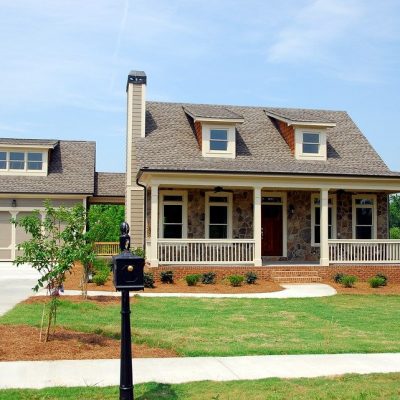Pros and Cons of Buying a Foreclosed Home
Have you ever considered buying a foreclosed home – a diamond in the rough at a price you can afford? As you might imagine, it’s important to know what you’re looking for and how to shop for a foreclosed home.
Foreclosure is the process through which a mortgage lender invokes the lien clause, assumes ownership of a property, and disposes of it to recoup the outstanding amount of principal and interest owed by the borrower. The foreclosure procedure varies from state to state in the US, but the phases remain almost the same across the country.
Stage 1. The lender issues a missed payment notice following the first delinquency. The letter usually serves to remind the mortgagor to make the monthly payment as agreed in the contract.
Stage 2. After the expiry of the grace period, the lender issues a demand letter requesting the borrower to regularize the mortgage account with penalties for late payment. The demand letter also stipulates consequences of non-compliance to the contract terms and conditions and for the first time, a homeowner is notified that the property may be repossessed within a specific period usually ninety days.
Stage 3. The notice of default is sent to the local court for the lien to apply so that the lender can assume ownership of the property.
Afterward, the lender invites bids for the property and if the sale is not successful, the property status will revert to a real estate-owned house under a realtor.
At any point, the delinquent home buyer can be asked to vacate the home closing the forbearance process.
Foreclosure frequency has plummeted, but it is still a buyer’s market
The CARES Act mortgage forbearance program and the Federal Government’s foreclosure moratorium are active until 30th July. Most lenders, State governments, and even the White House are likely to extend the order which allows mortgagors to default partially or fully without risking delinquency if they prove that they are affected by the coronavirus-related economic shocks.
Nonetheless, foreclosed properties grew to 223,671 in the second quarter of 2021 proving that the moratorium is not entirely treating the fact of real estate in distress. The same study also shows an increase in vacant properties meaning that you can find foreclosure homes at great discounts. However, before you contact leading mortgage firms and realtors in your dream neighborhoods, you should weigh the pros and cons of buying a house in foreclosure since below the market offers, you may incur other costs.
Pros of buying foreclosure homes
1. Great discounts
Foreclosures are indicators of an unhealthy economy and real estate in distress. Hence, you can bid and stand a higher chance to buy the house below market value if you exceed the usually concealed reserve price which is the minimum amount that can be accepted as the selling price. However, if you are the highest bidder you can follow up with the seller and negotiate with them to consider lowering the reserve price to meet you halfway. To have an upper hand at the negotiation table, you can pick out some property faults and use them as a basis for asking for a further discount.
2. Title reliability
The title to a foreclosed home is usually certified and held by reputable financial institutions. Hence, you are guaranteed that their title is clean since the due process must have been followed in the ownership transfer process. In case the title is void, you can always have your investment refunded as corporates tend to avoid negative publicity, especially for incompetence.
3. Immediate equity
If you buy a house below market value, you immediately acquire the property and you can refinance your mortgage and reinvest the cash out in remodeling your home or to improve your current financial position. This is a great idea to leverage and you can improve your wealth portfolio. However, for a real estate in distress, you may not get immediate equity and it may be advisable to hold on to your house in anticipation of a future boom.
4. Variety of options
Due to some public caveats and misinformation about buying a foreclosed home, the demand is usually low, and you may end up having numerous options to consider. On the other hand, most foreclosed homes are in suburban neighborhoods. Some of the factors to consider are; security, proximity to amenities like hospitals convenience stores, and grocery stores, schools, sense of community, etc.
The process of buying a foreclosed home could be not as long as buying a new home and you may end up with the keys to your house immediately if you pay in cash. In the meantime, if your credit score is excellent and your preferred source of finance is a mortgage, the process is shorter when you get the mortgage from the bank or mortgage institution selling the house.
Cons of buying foreclosure homes
1. Need for repair
When you find foreclosure homes sold below market value, you may probably find it necessary to do some repairs as the house may be in a damaged condition. Additionally, the interior and exterior design may not match your taste and you may need to remodel as the foreclosure houses are sold ‘as is’. This means that when you find foreclosure homes, you should not only budget for the bid but also set aside funds for repairs or remodeling.
2. Upfront payment
In a competitive market, the auctioneer may require upfront payment and you may not have adequate time for filing for a mortgage. However, if you are the only one expressing interest, you may have time to get mortgage approval.
3. Immediate responsibility
After the auctioneer’s hammer falls, you assume the liability for all the utilities and if the previous owner is yet to vacate, State laws such as the California Civil Codes 1161 through 1179, stipulate legal eviction which may take as much a month. In this period, you are responsible for all the utility bills incurred by the tenant although you may seek legal recourse. However, litigation may be more expensive, and you may end up just paying for utilities that you have not used which may even backtrack before the auction itself.
Weigh your options
When a house is sold below the market value, that may be the real value if you account for damages. To avoid receiving the short end of the stick, take your time, visit the property before signing any papers, and if possible, tag an appraiser and inspector along. Nonetheless, foreclosure prices are in general lower than buying newly made houses.





